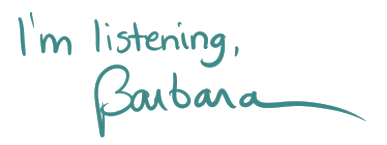
Taking a mini-mester course, especially one that compresses a semester’s worth of learning into just six weeks, can be a daunting but rewarding experience. These courses are intensive and require a different approach compared to traditional semester-long classes. If you’re gearing up for your first six-week mini-mester this summer, particularly in a field like public relations where adapting to changing circumstances and managing tight deadlines are part of the daily workflow, here are ten tips to help you make the most out of this accelerated learning experience.
1. Understand the Pace
- Expect Intensity: The first thing to understand about mini-mesters is the pace. You will cover the same material that’s usually spread over several months in just a few weeks. This means there will be a lot of information to digest in a short period, mirroring the fast-paced nature of the public relations industry.
- Daily Preparation: Prepare to engage with your course material daily. Unlike traditional courses, where you might have days between classes to review and study, mini-mester courses often require constant attention, much like a PR campaign that requires ongoing monitoring and adjustments.
2. Stay Organized
- Use a Planner: With the fast pace, keeping track of assignments, tests, and other deadlines is crucial. Use a planner or digital calendar to mark important dates. (TIP: The Syllabus tab in Canvas will show you ALL your deadlines for this course in one view.) In public relations, missing a deadline can have significant implications, and this practice helps instill good habits.
- Break Down Tasks: Large assignments can feel overwhelming. Break them down into smaller, manageable tasks that you can tackle daily. This approach is especially beneficial in PR, where campaigns and projects are often complex and multifaceted.
3. Manage Your Time Effectively
- Prioritize Wisely: Identify which tasks are most important and which can wait. Prioritize coursework that is due sooner or requires more of your attention. This skill is invaluable in public relations, where practitioners often juggle multiple clients and projects.
- Avoid Procrastination: In a 6-week course, there isn’t time to procrastinate. Try to start on assignments early, giving yourself plenty of time to ask questions or seek help if needed. In PR, early engagement can mean the difference between a successful campaign and a missed opportunity.
4. Stay Engaged with the Material
- Active Learning: Engage actively with the material through summarizing, questioning, and applying the information. This helps deepen your understanding and retention. For PR students, this means not just learning theories but also applying them to real-world scenarios.
- Regular Review: Set aside time each day to review your notes and key concepts to keep them fresh in your mind, much like how a PR professional would stay current with the latest industry trends and media landscapes.
5. Seek Help Early
- Use Office Hours: Don’t hesitate to use the instructor’s office hours or seek help from teaching assistants. In a mini-mester, it’s crucial to address misunderstandings as soon as possible. Similarly, in public relations, early feedback can help refine strategies and improve outcomes.
- Study Groups: Consider forming or joining a study group. Discussing the material with peers can provide new insights and reinforce your learning, akin to brainstorming sessions in a PR agency.

6. Take Care of Yourself
- Balance Your Load: Be realistic about what you can handle. Taking a mini-mester course might mean needing to lighten your workload elsewhere or adjust your work commitments, similar to how PR professionals manage their workloads to avoid burnout.
- Rest and Recharge: Ensure you get enough rest; sleep is crucial for memory and learning. Also, give yourself short breaks during study sessions to recharge, much like the strategic pauses in PR to assess campaign effectiveness.
7. Use Technology Wisely
- Educational Tools: Utilize educational tools and apps that can help you organize your notes, manage your time, and review course material effectively. For PR students, this mirrors the industry’s use of tools for media monitoring and campaign analysis.
- Digital Communication: Stay in touch with your classmates and instructor through digital platforms. Quick communication can be vital for clarifying assignments and coordinating with study groups, just as it is essential in maintaining client and team communications in PR.
8. Adapt Your Learning Style
- Find What Works: Some find that visual aids like charts and graphs help, while others prefer reading and summarizing. Find what works best for you in this condensed format. In PR, professionals often have to adapt their communication styles to different audiences and media platforms.
- Be Flexible: Be prepared to adapt your learning style to meet the demands of the course. Flexibility can help you absorb more information more quickly, a necessary skill in public relations where strategies often need to be pivoted with little notice.
9. Engage with the Course Material Before Classes Start
- Prep Work: If possible, try to get a copy of the syllabus and start reviewing the first few chapters of the textbook before the course begins. This proactive approach is much like how a PR professional prepares for a campaign launch.
- Familiarize Yourself: Understanding the course layout and expectations beforehand can give you a significant head start, similar to how PR professionals research and plan before initiating contact with the media or the public.
10. Reflect on Your Progress
- Keep a Learning Journal: Regularly write down what you’ve learned, questions you have, and key takeaways. (TIP: Handwriting your notes can help you retain the information better and for a longer period than typing your notes.) This can enhance your learning and provide a valuable resource for review, similar to reflective practices in PR that help professionals learn from each campaign.
- Adjust as Needed: Be prepared to adjust your strategies based on what is and isn’t working. Regular reflection can help you optimize your approach to the course, just as continual evaluation and adjustment are critical in successful public relations campaigns.
Conclusion
Mini-mester courses are challenging, and they offer a unique opportunity to accelerate your learning. By staying organized, managing your time effectively and staying engaged with the material, you can not only survive but thrive in this accelerated learning environment. Remember, it’s a sprint, not a marathon, and with the right strategies, you’ll cross the finish line successfully, much like how a well-executed PR campaign leads to success.
What other tips do you have for success in a mini-mester course?

NOTES
The framework of this article was inspired by ChatGPT.

